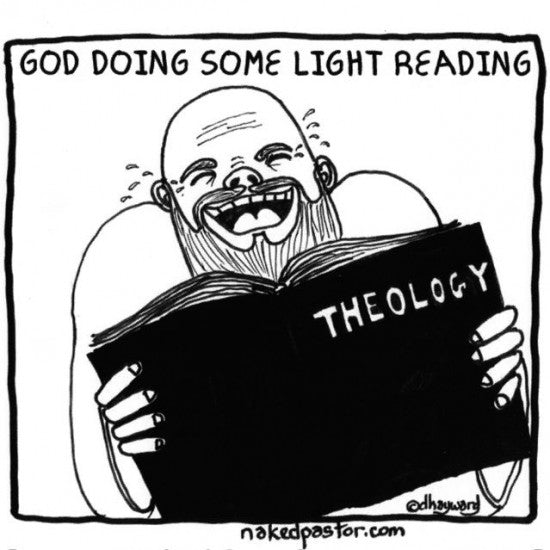Tony Jones has been accused of making offensive statements and he's come to his own defence in his post "I'm Tired of Being Called a Racist".
If we are interested in clear and clean communication within the theological community, then there are few lessons to be learned from this unfolding story.
We should look inward if we have been accused of something more than once.
Actually, Jones has been accused of saying things that were "borderline racist" before. That's not necessarily the same as being called a racist.
But there is systemic racism that white males are complicit in and that no matter how hard we try to think, speak and act free of it, we are entangled in a racist system that is still breathing.
I believe it is humble, honest and helpful to admit this before we move forward in our theological conversations.
The cries of discrimination must be considered valid immediately, especially when rising from those who are or even feel discriminated against.
We can't move forward if accusations of discrimination are dismissed, excused, explained away, or defended against.
If you take some time to read the over 174 comments to the above post link, there's some good reading there. I don't want to labor those points all over again.
But the one issue I really want to address is what I believe started the whole thing.
Here's a summary I'm getting these quotes from Jones' own article. He said,
"We have a better version of the gospel than the regnant view of the gospel in the West today."The person who responded to that statement, an African-American woman, said,
"As a minority group member sitting in the audience, I found his statement to be unfriendly to diverse voices... Most blatantly, the statement violates the metaphor of the interdependent and multifaceted body of Christ. How can a gospel that is mostly (if not entirely) interpreted and articulated by a homogenous group of people (in this case, white, well-educated males) be the "better version"? But in a more subtle way, his statement sent a clear and powerful message to all of the diverse people in the room (e.g., women, people of color, people without advanced degrees, etc.). No need to join our movement; we don't need diverse voices. We've already got the best version of the Gospel and we only needed white, well-educated men to figure it out. Diverse people need not apply."Another incident where Jones claimed that Pentecostal theology "isn't the best theology out there", a woman, also African-American, responded:
"To say that the Pentecostal theology is weak and that the American theology is sophisticated, I just, I cringe at that. If there's one thing that I've learned here at Fuller I've learned that all theology is contextual, and to say that your American theology and you have to think about the fact, I mean, I hate to bring up race, but, I can't avoid it, I'm sorry but, as a Caucasian man living in America, to say that your theology is sophisticated and to say that the theology of Latin America and South America is weak, I mean, it's appalling, it's shocking for me to hear that, it's offensive, it's borderline racist, and it's very closed-minded."
Jones' shouldn't have said "better". He responds that at least he didn't say "best".
But this is exactly the problem.
If one theology is better than the other than the implication is that smart people will choose the better one, which is presumably his.
(Click on image to get a digital download or click HERE!)
I suggest that we need to consider all theology as cumulative. We are all contributing to the conversation and hopefully to a good conclusion. Like all good processes, nothing is wasted but folded into the further development of what is best.
Jones, as well as the woman who responded to his ideas, are both potentially engaged in the evolution of a better theology.
Actually, in my opinion, the woman sounds more concerned for inclusivity in the theological process than Jones who sounds more competitive in that statement.
If we are working for diversity in the theological community then no one should claim dominance but rather submit contributions to the conversation.
What is every school of theology bringing to the table? Let's submit every word from every corner to corporate judgement. This isn't a race! If we want to build a better theological community then first of all we need to humbly give and receive criticism about the foundations that are still riddled with structural flaws such as racism.
The theological machine driven by straight white males is beset with blind spots. And the problem with blind spots is that we aren't aware of them until we cause an accident and someone gets hurt, as Jones should have discovered and we as witnesses should learn from.
But the best thing about blind spots is that if someone points them out to us, we can fix them.
Will Jones?


